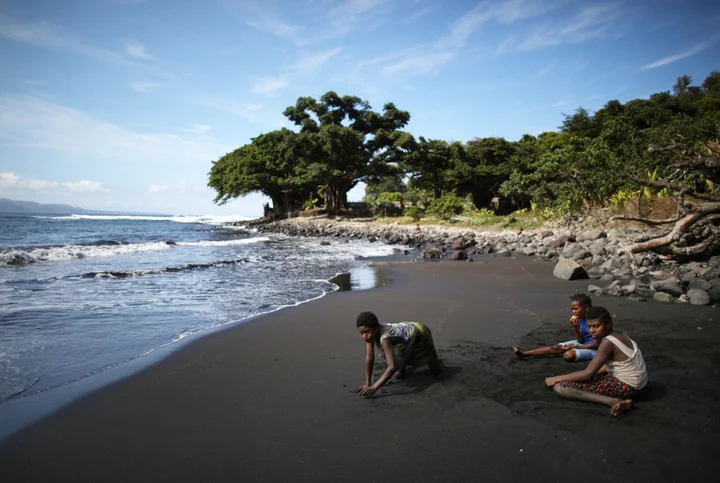A group of nine small island nations are pinning their hopes on international law to force countries into cutting the carbon emissions that are causing them to sink.
On Monday, the International Tribunal for the Law of the Sea, based in Hamburg, will be asked to decide whether United Nations ocean pollution laws, backed by 176 countries, also apply to planet-warming carbon dioxide emissions.
As sea levels rise, some islands – including Tuvalu and Vanuatu – face becoming completely submerged by the end of the century. Tuvalu’s capital Funafuti, could be flooded by 2050 if climate change is left unchecked.
This latest legal push comes amid widespread frustration among small island states and developing nations that the world is acting too slowly on tackling global warming. Now they are hoping to use legal levers to push the world’s biggest polluters to act.
Earlier this year, a wider group of climate vulnerable islands, led by Vanuatu asked the International Court of Justice to issue its assessment of what countries are obliged to do in order to make sure that global temperature rise is kept below the Paris Agreement target of 2 degrees Celsius.
The 41 year-old the International Tribunal for the Law of the Sea was established to preside over disputes relating to the UN’s Convention on the Law of the Sea, which was signed in 1982 by 176 countries, including China and the European Union, but not the US.
It governs industries including deep sea mining and shipping, and requires signatories to take measures to prevent, reduce and control pollution of the marine environment, as well as protect and preserve that environment.
The question is whether “pollution” includes CO2. A decision is expected in early 2024.
If the tribunal agrees with the small island nations that CO2 is indeed a form of pollution, then it would put further pressure on signatories to reduce greenhouse gases.
“Without rapid and ambitious action, climate change may prevent my children and grandchildren from living on the island of their ancestors, the island that we call home. We cannot remain silent in the face of such injustice,” said Gaston Alfonso Browne, the Prime Minister of Antigua and Barbuda.









